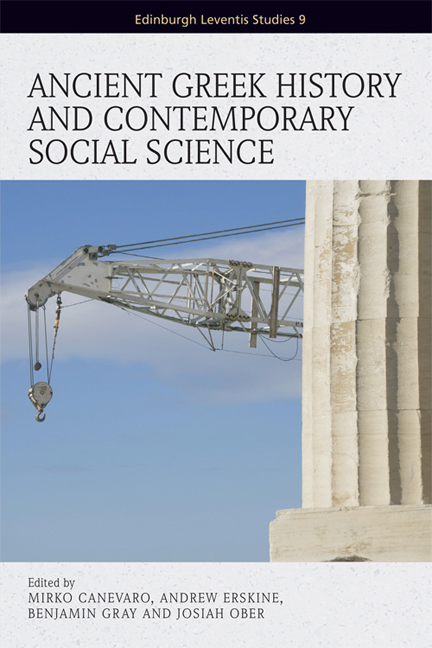2 - The City in Chorus: For a Choral History of Athenian Society
Published online by Cambridge University Press: 06 May 2021
Summary
The controversial challenge introduced twenty years ago by actor– network theory (ANT) is well known. ‘Society’ functions so little as a concept that it should be dismissed so that the various forms of composition and association that serve as the theatre for social activity can be observed. Going against the Durkheimian tradition, Bruno Latour and those close to him intended to call into question the commonly held conception that makes society ‘as a whole’ a ‘substance’ providing all areas of activity with a type of specific causality. However, ANT did not simply take up the reservations that had long been formulated by ethnomethodology. It claimed to go beyond the canonical opposition between structure and agency. In this respect, it was less about restoring the place of actors and interactions than shedding light on the processes of assembly and composition (surpassing the distinction between nature and culture) between heterogeneous elements that would form the heart of the social, conferring upon sociology the status of ‘science of associations’.
The influence of ANT is more or less explicitly assumed in a number of recent projects in the field of classical studies that favour the description of civic societies in terms of networks and circulation. In fact, such a research perspective goes against the Durkheimian tradition that so greatly influenced Greek studies in France, making the city – which is identified with civic authorities and likened to a centralising body – the key actor in the changes affecting Greek societies. Like all epistemological advancements, this perspective is not free from the dangers of generating an uncontrolled use of certain key notions, the term ‘network’ becoming a fetish capable of defining collective action in its most diverse forms. Moreover, extensive use of the term often leads to indefinitely delaying – and even occulting – the (eminently Durkheimian) question of the constituting identity of the community (in its singularity, with its boundaries, specific values and so on).
A FORGOTTEN METAPHOR OF THE DURKHEIMIAN SCHOOL
Within the Durkheimian tradition itself, however, there is a figure – or a paradigm – that is likely to go beyond the opposition between structure and agency and, moreover, to resolve the shortcomings of the overly extensive use of the term ‘network’. This figure has a clear ‘Greek reference’, since it concerns the chorus: choros.
- Type
- Chapter
- Information
- Ancient Greek History and Contemporary Social Science , pp. 47 - 67Publisher: Edinburgh University PressPrint publication year: 2018



